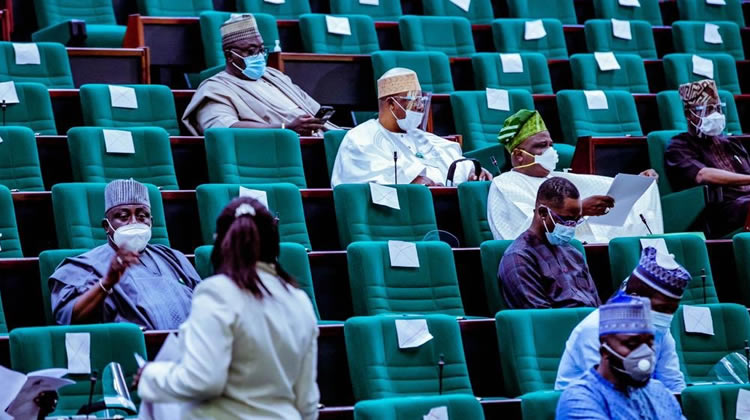The Federal Government of Nigeria spent a total sum of ₦11,349,583,186,313.40 from 2010 to date on the moribund refineries in the country, the House of Representatives Ad Hoc Committee on the State of Refineries has revealed.
The Chairman of the committee, Ganiyu Johnson, however, failed to convince the Deputy Speaker, Ahmed Wase, who chaired the Committee of the Whole, to consider the report.
Wase dismissed the recommendations by the committee as failing to address the main issues for which the panel was set up as well as not being far-reaching enough to change the current situation of things.
In the report, which was sighted by Africa Today News, New York, the committee gave a breakdown of the actual cost of rehabilitating the Nigerian refineries between 2010 and 2020, and from 2020 to date.
According to the panel, the total cost of rehabilitation within the period is ₦11,349,583,186,313.40 while the additional costs in other currencies are $592,976,050, €4,877,068.47 and £3,455,656.93.
Giving a breakdown of the figures, the committee said while the cost of rehabilitation projects was ₦42,646,596,313.40, the deduction from Federation Account for rehabilitation was ₦191,670,000,000, and the losses by the refineries over a given period at N366,524,140,000.
While subsidy payments from 2010 to 2020 were N5,948,140,000,000, the total cost of running the refineries was ₦4,800,602,450,000.
Read Also: Atiku Vows To Sell Refineries, Set Up $10bn Funds For Youths
Listing its findings, the committee said it discovered that the nation’s three refineries became unproductive from 2010, “making the following range of losses: Port Harcourt Refinery Company at 7.6 per cent losses to the tune of N132,526 from 2012; Warri Refinery at 6 per cent losses to the tune of N111.376bn from 2014; and Kaduna Refinery at 10 per cent losses to the tune of N122,621 from 2014.
From 2010 to 2019, the committee said the nation’s refineries were performing “sub-optimally with an annual combined capacity of less than 30 per cent, therefore, in the year 2019 the NNPC obtained executive approval and shut down the refineries for comprehensive rehabilitation to restore the plants to a maximum of 90 per cent nameplate company utilisation.”
The committee said it found out, ‘That the total losses from the non-functional refineries since the year 2010 are put at N366,524,140,000 only; that the total cost of operations and running the refineries from 2010 – 2020 is put at N4,800,602,450,000 only; that the Port Harcourt Refinery Company carried out rehabilitation projects over a period of seven years, ranging from 2013 to 2019 valued at about N12,161,237,811.61 only; that the Warri Refinery and Petrochemical Company carried out rehabilitation projects over a period of six years, ranging from 2014 to 2019 valued at about N28,219,110,067.10; that Kaduna Refinery and Petrochemical Company also carried out rehabilitation works over the period under review valued at about N2,266,248,434.69.
‘That the total cost of rehabilitation for the three refineries based on the submissions of the NNPC from the year 2013 to 2019 is put at N42,646,596,313.40 only; that other project costs were reported in foreign currencies at KRPC such as USD43,672,537.56, EUR2,852,068.15 and GBP 3,455,656.93;
‘That the SAIPEM Contracting Nigeria Limited was awarded a contract in 2017 by the NNPC for the Technical Plant Survey of Warri and Kaduna Refineries for the Contract Price of €2,025,000.32; that the total value of the contract for the Technical Plant Survey of Warri and Kaduna refineries awarded to SAIPEM was €2,025,000.32 and the total sum of money received by SAIPEM is €1,822,500.29, while the total sum outstanding is €202,500.03.’
The report also stated that the NNPC, in 2016, obtained presidential approval of the sum of $2.1bn for the rehabilitation of refineries to be funded over a three-year period; and that the National Assembly approved provisions for the refineries rehabilitation of N100bn, N100bn and N109.326bn in 2020, 2021 and 2022 fiscal framework, respectively.

